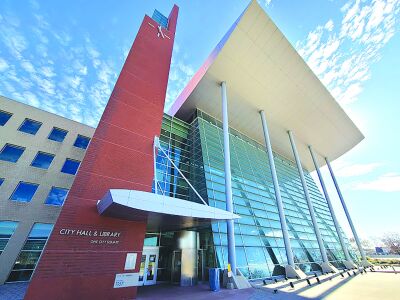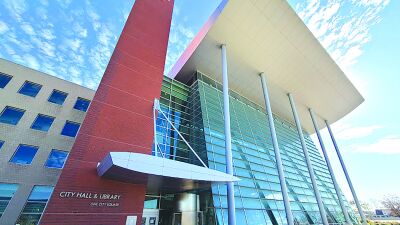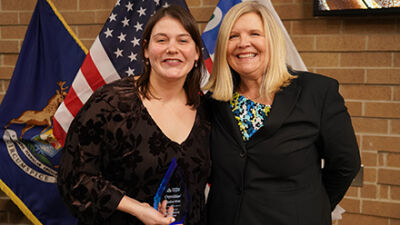WARREN — Warren recently received an unmodified opinion on its annual audit.
While the audit for the 2023-2024 fiscal year was unanimously received and filed by the City Council, it didn’t mean there weren’t questions at the council’s Jan. 14 meeting.
Plante Moran did the city’s audit, with Bill Brickey and Josh Yde giving a presentation at the meeting.
“The city did receive an unmodified audit opinion again in the current year, which essentially means the financial statements are in compliance with all the rules and regulations and can be relied upon,” Brickey said. “It’s really the highest level of assurance that we can provide on a financial statement.”
Separately, Plante Moran did an audit on the city’s federal grants. The city received over $4.7 million in grants for the fiscal year. The audit specifically tested grants associated with the COVID-19 pandemic, according to Brickey. Grants examined were from the American Rescue Plan Act and the Housing Opportunities for Persons With AIDS program. Later in the presentation, Yde said $17.9 million in ARPA funds have yet to be spent.
“I am pleased to report that our testing did not identify any noncompliance issues,” Brickey said. “Our report that you have there just basically says you complied with all the rules and regulations related to those grants and spent the money appropriately.”
However, Brickey said there were changes required for the city’s capital asset calculation, as well as its grant revenues and receivables.
“When we identified these items and brought them to management they made the required corrections,” he said. “That’s why we’re able to provide you the unmodified audit opinion, but we are required to report that issue to you given your role as council.”
Brickey attributed the issue to turnover in the city’s finance office and getting new employees “up to speed.”
The thorniest issue was the general fund expenditures. Based on the presentation, the city came in under budget by $31.1 million. Yde said all departments remained within budget for the year. He attributed this to the timing of equipment purchases and variances in positions. The general fund balance increased by $6 million for last year, totaling $95,167,886.
Councilman Jonathan Lafferty, who asked a number of questions on audit minutiae, asked about the gap.
“I’m curious if we should be focusing on you narrowing that field,” Lafferty said. “Should we be a little bit more conservative at budget time and pulling back 10-15%?”
“I would tend to agree with you typically,” Brickey said. “I would like to see that a little tighter, where you’re closer to where you were budgeted.”
Brickey suggested looking at budget amendments more carefully throughout the year to narrow this gap.
Later in the meeting, Richard Fox explained the difference.
“The largest portion of the difference was capital expenditures for equipment,” Fox said. “That was, I’m thinking, somewhere around $18 million and then the other balances are just each department didn’t spend all their dollars, which is what we want. We want them to manage their funds and save the city as much as possible.”
Councilman Henry Newnan also commented about the gap.
“I’m not trying to say that it’s good or bad, I’m just saying I think that our overall philosophy is that we’re in fairly tight economic times and we need to be very fiscally conservative,” he said. “I think that’s the consensus and I think that should be a major finding of this.”
Additionally, Council Secretary Mindy Moore pointed to a 12% decrease in licenses and permits as a “red flag.”
“We have to watch that because it looks like development is down and things like that,” Moore said. “I’d like to maybe see where we’re at this year with that to sort of track that to get an idea if that’s sort of a harbinger of things.”
Revenue for the city went up by over $9 million mostly due to increased property tax revenue, according to the presentation given at the meeting. This is a result of increasing property tax value in the city, according to Yde.
Increases in public safety spending drove expenditures up for the year. Public safety makes up 71% of the city’s spending for the year followed by general government costs at 12%.
Brickey said the city provides a financial report separately from what’s required and presents it to the Michigan Government Finance Officers Association, which is more than what’s required by the state. For the 19th year, the city received an award for its submission.
 Publication select ▼
Publication select ▼



























